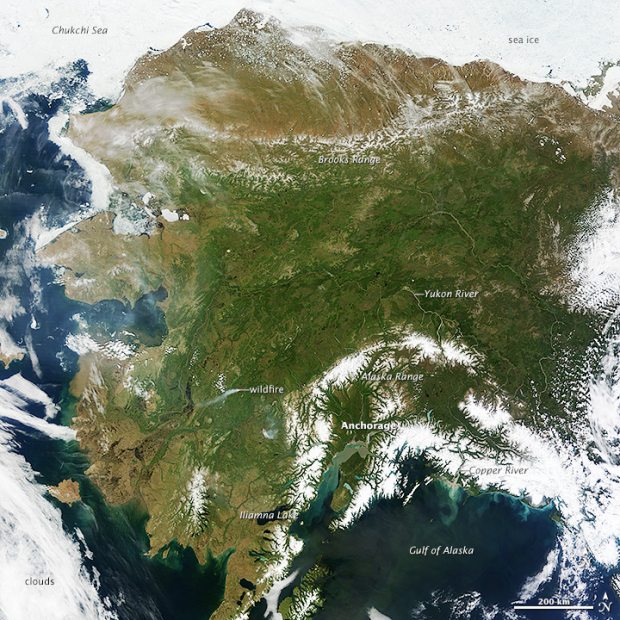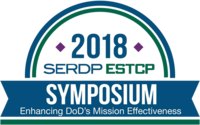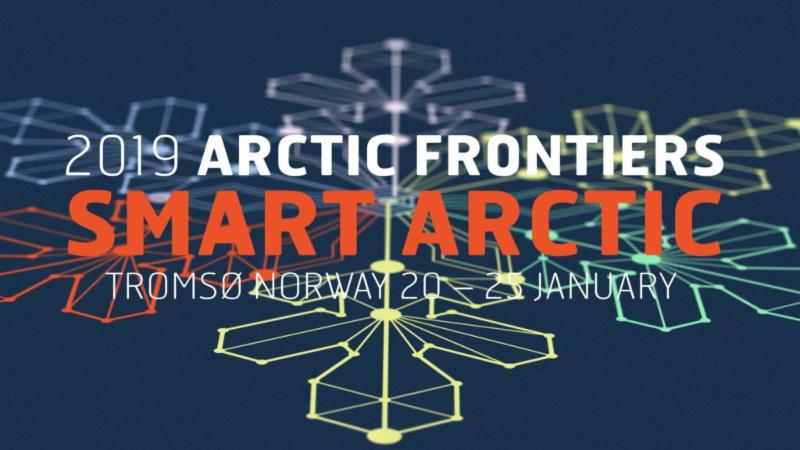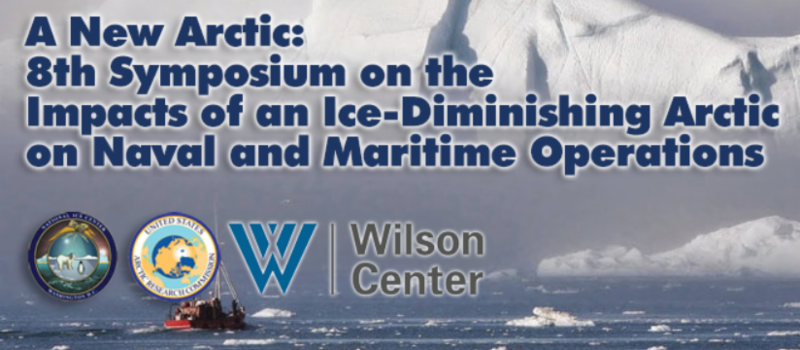|
|
|
|
|
|
|
|
No Arctic science events are scheduled for today.
|
Media
 Melting Ice Has US Military Looking North to the Arctic. Melting Ice Has US Military Looking North to the Arctic. Army helicopters began flying in and out of the scraggly wilderness near this fishing town in August, surprising even the mayor. The tan, twin-rotor Chinook aircraft thumped over treeless cliffs and the historic port of Dutch Harbor, parking at a mountainside airstrip too small to land jet airliners. Soldiers came and went, sometimes staying at the main hotel in town, across the street from a bar called the Norwegian Rat Saloon. Unalaska's mayor, Frank Kelty, said he called the military to find out what was going on but learned little. Anchorage Daily News
Marine Mammal Commission Announces Fiscal Year 2019 Grant Focal Area: Impacts of a Changing Ocean on Marine Mammals of Importance to Alaska Natives. Maintaining marine mammals as functioning elements of healthy ecosystems and as resources for subsistence needs of Alaska Native communities, requires understanding the role of marine mammals in the ecosystem and how they may be impacted by ongoing changes in the environment and human use of marine areas. Access to accurate and precise information is imperative for sound decision-making, and can be facilitated by co-production of knowledge between scientists and Alaska Native communities. Marine Mammal Commission
The Arctic is Turning Brown Because of Weird Weather-and it Could Accelerate Climate Change. Over the last few years Arctic scientists have reported a surprising finding: large areas of the Arctic are turning brown. This is in part due to extreme events linked to winter weather, such as sudden, short-lived periods of extreme warmth. These events are occurring as the climate warms, which is happening twice as fast in the Arctic compared with the rest of the planet. Extreme events are therefore happening more and more often, with increasingly severe effects - including widespread damage and death in Arctic plants. Phys.org
NASA Chimes in on Beaufort Sea Drilling Rigs. The federal agency that oversees offshore petroleum leasing has received comment on Arctic Ocean drilling from a surprise source - NASA. Alaska's Energy Desk reports that the Bureau of Ocean Energy Management asked for comment as the Trump administration considers a 2019 lease sale in the Beaufort Sea. A letter from NASA says Beaufort Sea drilling rigs could be affected by launches from its only high-latitude rocket range. CBC News
 Alaskans are on the front lines of Climate Change, New Report Shows. Alaskans are on the front lines of Climate Change, New Report Shows. Alaska "is warming faster than any other state, and it faces a myriad of issues associated with a changing climate," according to the Fourth National Climate Assessment report released today. In the report, data shows temperatures warmed across Alaska at twice the rate of the rest of the world over the last 50 years. Specific impacts to the state include warmer temperatures and more precipitation. The report says Interior and northern areas of the state are projected to warm more than the southern areas of Alaska. The report also states, "average annual precipitation increases are projected for all areas of the state, with greater increases in the Arctic and interior and the largest increases in the northeastern interior." KTUU
|
|
Future Events
DOD Arctic research session at SERDP/ESTCP, Nov. 29, 2018, Washington, DC. An Arctic research focus will be presented at the SERDP-ESTCP annual meeting "Enhancing DoD's Mission Effectiveness." The Strategic Environmental Research  and Development Program (SERDP) and Environmental Security Technology Certification Program (ESTCP) symposium is a nationally recognized conference focusing on DOD's priority environmental and installation energy issues. This year's meeting, at the Washington Hilton Hotel, 1919 Connecticut Ave., NW, Washington, DC 20009, will feature a technical session on Arctic research under the theme of "Resource Conservation and Resiliency." The session is scheduled for Thursday, Nov. 29th, from 8:30 am to 11:30 am, and will include the following speakers: Andrew Nelson (USACE), John Farrell (USARC), Martin Jeffries (USACE/CRREL), John Woods (ONR-RC), Kevin Bjella (USARC/CRREL), and Hajo Eicken (UAF/IARC). and Development Program (SERDP) and Environmental Security Technology Certification Program (ESTCP) symposium is a nationally recognized conference focusing on DOD's priority environmental and installation energy issues. This year's meeting, at the Washington Hilton Hotel, 1919 Connecticut Ave., NW, Washington, DC 20009, will feature a technical session on Arctic research under the theme of "Resource Conservation and Resiliency." The session is scheduled for Thursday, Nov. 29th, from 8:30 am to 11:30 am, and will include the following speakers: Andrew Nelson (USACE), John Farrell (USARC), Martin Jeffries (USACE/CRREL), John Woods (ONR-RC), Kevin Bjella (USARC/CRREL), and Hajo Eicken (UAF/IARC).
Causes for the record low sea-ice extent in the Bering Sea in 2018, November 19, 2018 (Webinar). This seminar is part of NOAA's EcoFOCI bi-annual seminar series focused on the ecosystems of the North Pacific Ocean, Bering Sea and U.S. Arctic to improve understanding of ecosystem dynamics and applications of that understanding to the management of living marine resources. This webinar will be an in-depth look at the driving factors of a warm Bering Sea including ice arrival, extent, and implications.
American Geophysical Union Fall meeting, December 10-14, 2018 (Washington, DC USA). The AGU 2018 Fall Meeting will mark another dynamic year of discovery in Earth and space science, serve as the advent of AGU's Centennial year, and provide a special opportunity to share our science with world  leaders in Washington, D.C. As the largest Earth and space science gathering in the world, the Fall Meeting places you in the center of a global community of scientists drawn from myriad fields of study whose work protects the health and welfare of people worldwide, spurs innovation, and informs decisions that are critical to the sustainability of the Earth.
USARC Commissioner Jacqueline Richter-Menge to deliver the Nye Lecture at the 2018 AGU Fall Meeting. The US Arctic Research Commission (USARC) is pleased to announce that Commissioner Jacqueline Richter-Menge will present this year's Nye Lecture, titled "A Career of Change," at the Fall Meeting of the American Geophysical Union (AGU) in Washington, DC at 2:50 pm on Tuesday, December 11, 2018 in the Marquis room of the Marriott Marquis Hotel, 901 Massachusetts Ave. NW, Washington, DC 20001.
ArcticNet: Annual Scientific Meeting 2018, December 10-14, 2018 (Ottawa, ON Canada). Canada's North is experiencing unprecedented change in its sea and terrestrial ice, permafrost and ecosystems under the triple pressures of climate change, industrialization and modernization. The impacts of these pressures can be seen on food and energy security, shipping, sovereignty, northern community health and well-being, and sustainable development and resource exploitation. All these issues have brought the North to the forefront of national and international agendas. Building on the success of its previous Annual Scientific Meetings and International Arctic Change Conferences, the Arctic Network of Centers of Excellence announces the 14th ArcticNet Annual Scientific Meeting.
 Arctic Frontiers, January 20-25, 2019 (Tromso, Norway). The Arctic Frontiers is a global scientific conference on economic, societal, and environmental sustainable growth. This year's theme will be "Smart Arctic," with a pan-arctic emphasis, and an effort to build new partnerships across nations, generations and ethnic groups. Arctic Frontiers provides a forum for dialogue and communication between science, government and industry. The plenary program will have five main sessions: State of the Arctic, Blue Growth, Smart Solutions, Bridging the Gap, and Arctic business prospects. An abstract-driven science program will address Plastics in the Ocean, the Future of Governance and Handling Vulnerability in Arctic Ecosystems, State of the Arctic and A Smart Arctic Future.
Save the Date! 
Mark your calendars to attend IDA-8, which some have called one of the best Arctic gatherings around. Historically, this biennial symposium was co-hosted by U.S. National/Naval Ice Center (NIC) and the US Arctic Research Commission (USARC). In 2019, these partners will join forces with the preeminent Wilson Center's Polar Institute, as a third co-host. The now 2-day symposium will be held in the Ronald Reagan Building Amphitheater, in Washington, DC. The event will focus on a broad cross-section of naval and maritime operations and issues in an ice-diminishing Arctic. The symposium brings together nationally and internationally recognized experts on Arctic governance, geopolitics, marine operations, infrastructure, science, and environmental observations, from the local, regional, and pan-Arctic scale. Information on prior symposia, including lists of speakers, video clips, and copies of presentations, is available here. Attendance is free, and registration will begin in Spring 2019. The event will be webcast live, and video recorded.
 of the AAG includes over 8,500 geographers converging from the U.S., Canada, and nearly 60 other countries in a typical year including geographers, GIS specialists, environmental scientists, and other leaders for the latest in research and applications in geography, sustainability, and GIScience. of the AAG includes over 8,500 geographers converging from the U.S., Canada, and nearly 60 other countries in a typical year including geographers, GIS specialists, environmental scientists, and other leaders for the latest in research and applications in geography, sustainability, and GIScience.
|
|

  
4350 N. Fairfax Drive, Suite 510
Arlington, VA 22203, USA
External links in this publication, and on the USARC's World Wide Web site ( www.arctic.gov) do not constitute endorsement by the US Arctic Research Commission of external Web sites or the information, products or services contained therein. For other than authorized activities, the USARC does not exercise any editorial control over the information you may find at these locations. These links are provided consistent with the stated purpose of this newsletter and the USARC Web site.
|
|
|
|
|
|
|
|
|